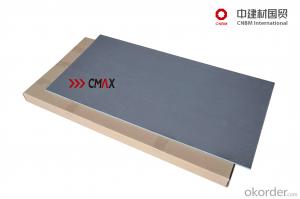Expanded Polystyrene (EPS) is a versatile material that has found its way into various industries due to its unique properties. Known for its lightweight, insulation capabilities, and cost-effectiveness, EPS has become a popular choice for sandwich panels. These panels are essentially a composite structure made up of two outer layers and a lightweight core, which is often EPS. The combination of these materials results in a strong, durable, and energy-efficient product that is perfect for a wide range of applications.
The Magic of EPS: A Closer Look
EPS is a closed-cell foam material that is derived from the polymer polystyrene. It has a low thermal conductivity, making it an excellent insulator. This property is particularly useful in sandwich panels, where the EPS core helps to maintain a consistent temperature within the structure. The low density of EPS also contributes to the overall lightness of the panels, making them easy to handle and install.
Versatility in Action
One of the key advantages of EPS sandwich panels is their versatility. They can be used in a variety of applications, from construction and architecture to transportation and cold chain logistics. In construction, EPS panels are often used for wall and roof insulation, providing a thermal barrier that helps to reduce energy consumption. In architecture, they can be used to create unique and visually appealing designs, thanks to their lightweight and easy-to-manipulate nature.
Cost-Effectiveness: A Winning Factor
When it comes to cost-effectiveness, EPS sandwich panels truly shine. The production process of EPS is relatively simple and inexpensive, which translates to lower costs for the end consumer. Additionally, the lightweight nature of the panels means that less material is needed for a given project, further reducing costs. This makes EPS sandwich panels an attractive option for businesses and individuals looking to save on construction and insulation expenses.
Eco-Friendly and Sustainable
EPS is also an environmentally friendly choice. It is made from a renewable resource, and its production process has a lower carbon footprint compared to other insulation materials. Furthermore, EPS can be recycled, reducing waste and contributing to a more sustainable future. The use of EPS in sandwich panels not only provides energy efficiency but also aligns with the growing demand for greener building materials.
Design and Customization
The design flexibility of EPS sandwich panels is another aspect that sets them apart. They can be easily cut and shaped to fit specific project requirements, allowing for a high degree of customization. This makes them suitable for both small-scale and large-scale projects, where unique designs and precise specifications are needed.
Durability and Longevity
EPS sandwich panels are not just about insulation and cost savings; they also offer excellent durability and longevity. The robust outer layers protect the EPS core from damage, ensuring that the panels maintain their structural integrity over time. This means that, with proper care and maintenance, EPS sandwich panels can last for many years, providing a long-term solution for various applications.
Applications Beyond the Obvious
While EPS sandwich panels are commonly associated with construction and insulation, they have found their way into other industries as well. In the transportation sector, they are used for lightweight vehicle parts, contributing to fuel efficiency and reduced emissions. In cold chain logistics, they are used for refrigerated containers and trucks, ensuring that perishable goods remain fresh during transportation.
The Human Touch: Stories of Success
EPS sandwich panels have been used in numerous successful projects around the world. From small-scale home renovations to large commercial buildings, these panels have proven their worth time and time again. Hearing the stories of people who have benefited from using EPS sandwich panels can be truly inspiring, showcasing the real-world impact of this cost-effective solution.
The Future of EPS Sandwich Panels
As the world continues to evolve and the demand for sustainable, energy-efficient solutions grows, the future looks bright for EPS sandwich panels. With ongoing research and development, we can expect to see even more innovative uses for this versatile material. The potential for growth and improvement in the field of EPS sandwich panels is immense, and it’s exciting to think about the possibilities that lie ahead.
In Conclusion
Expanded Polystyrene Sandwich Panels are more than just a construction material; they represent a shift towards a more sustainable and cost-effective future. Their unique blend of properties – insulation, lightweight, durability, and eco-friendliness – make them an ideal choice for a wide range of applications. As we move forward, it’s important to recognize and embrace the potential of EPS sandwich panels, and to continue exploring the ways in which they can contribute to our ever-changing world.

